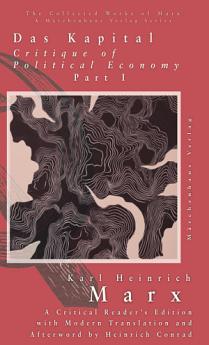Das Kapital: Critique of Political Economy Part I
About this ebook
Beneath the empirical treatment of factory conditions, surplus value, and labor-time, the text unfolds a grim metaphysical drama, in which capital—animated by accumulated labor—moves through the world with a spectral autonomy. The famous opening chapters, dense with abstraction, present the commodity form almost as a theological fetish, a secularized idol that mediates all social relations and conceals the origin of its value in human labor. Here the Hegelian logic of inversion—the world turned upside down—reappears in Marx’s description of capital as a social relation that presents itself as a thing, and labor as a thing that presents itself as a social relation. Value itself becomes a ghostly presence, immanent yet invisible, moving according to laws that mirror the abstract unfolding of Geist in Hegel’s system, but now grounded in economic life rather than divine reason. What emerges is not only a critique of political economy but a materialist metaphysics of modernity—an exorcism of its hidden theological residues in the language of science.
This modern Critical Reader’s Edition includes an illuminating afterword tracing Marx’s intellectual relationships with revolutionary thinkers and philosophers (including Hegel, Feuerbach, Engels, and Ricardo), containing unique research into his ideological development and economic-metaphysical theories, a comprehensive timeline of his life and works, a glossary of Marxist terminology, and a detailed index of all of Marx’s writings. This professional translation renders Marx’s dense, dialectical prose into modern language to preserve the original force and precision of the text. Combined with the scholarly amplifying material, this edition is an indispensable exploration of Marx’s classic works and his enduring Hegelian-Protestant influence in the political, religious, economic, and philosophical spheres.
Ratings and reviews
- Flag inappropriate
- Show review history










